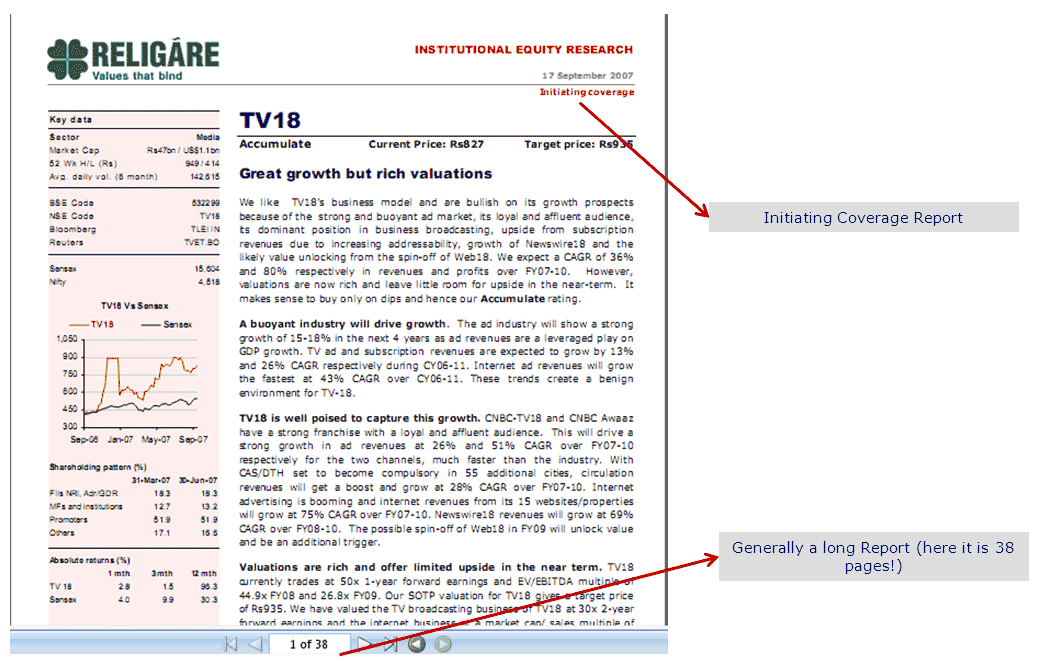Putting money in the stock market can be simultaneously exciting and intimidating. Many investors find themselves burdened by the large quantities of data available, making it difficult to determine the best opportunities for growth. This is where the practice of equity analysis comes into play. By leveraging the expertise of professionals in equity analysis, you can navigate the complexities of the financial landscape with confidence and make well-informed choices that align with your financial goals.
The practice of equity analysis involves analyzing a company's fiscal condition, market position, and future prospects. Specialists in this field use a variety of tools and techniques to assess value and spot patterns that may not be immediately apparent. Whether you are a veteran investor or just beginning your investment journey, grasping the fundamentals of equity analysis can be your pathway to successful investing. By partnering with specialists in this area, you can gain valuable insights that enable you to capitalize on profitable opportunities and minimize risks in your investment approach.
Understanding Stock Assessment
Equity assessment is a method used by traders to evaluate the price of a company's shares. This analysis involves examining income statements, economic trends, and economic indicators to determine whether a share is undervalued. By understanding a firm’s overall financial health, investors can make wise decisions about acquiring, holding, or divesting their stocks.
Stock evaluation typically involves two chief approaches: basic analysis and statistical analysis. Fundamental evaluation focuses on economic aspects, company performance, and industry conditions, seeking to comprehend the actual price of a stock. On the other hand, technical analysis relies on data trends from previous price shifts and transaction volumes to anticipate future price changes. Both methods provide critical insights that can help investors navigate the complexities of the stock market.
Making use of equity analysis specialists can boost the financial process substantially. These professionals possess the expertise and resources necessary to interpret massive data sets and spot important patterns that may not be immediately apparent to the ordinary investor. By taking advantage of their expertise, investors can gain a more holistic view of the market, allowing for more thoughtful investment decisions and in the end leading to increased monetary success.
Key Metrics for Evaluating Stocks
When evaluating stocks, several key metrics can provide clues into their potential for growth and consistency. One of the most important metrics is the Price-to-Earnings (P/E) ratio, that contrasts a company's current share price to its earnings per share. A decreased P/E ratio might indicate that a stock is not valued enough, while a increased ratio might suggest it is valued too highly relative to its earnings. Analysts frequently use the P/E ratio in conjunction with sector standards to determine whether a stock is a good buy or not.
Another important metric is the Return on Equity (ROE), that assesses a company's financial success by revealing how much profit a company generates with the capital shareholders have invested. A greater ROE indicates better management and a potentially improved investment. Investors usually look for companies with consistently high ROE figures, as this can indicate not only robust past performance but also future growth potential.
Finally, the Debt-to-Equity (D/E) ratio is a useful measure of a company's financial leverage and risk. This ratio contrasts a company's total liabilities to its shareholder equity, providing investors visibility into how much debt the company is using to finance its assets. A lower D/E ratio generally suggests a more secure company, while a increased ratio might indicate greater risk. By evaluating these metrics, investors can make more informed decisions regarding stock investments and identify those that align with their financial goals. ### Developing a Well-structured Equity Investment Plan

Establishing a comprehensive capital investment strategy is essential for maximizing gains and minimizing threats in your capital assets. Begin by clearly articulating your monetary objectives and investment horizon. Understanding if equity research report is for immediate gains or long-term appreciation will inform your decision-making approach. Be clear about your desired returns, risk tolerance, and the amount of capital you are ready to invest in equity investments.
Subsequently, engage with equity analysis specialists who can provide important insights and evidence-based recommendations. These experts employ multiple analytical methods and techniques to assess potential investments. They can help identify bargain stocks and promising sectors, allowing you to make educated decisions based on thorough evaluation rather than emotions or market movements. Working with specialists also enables you to remain informed on market dynamics and modify your strategy accordingly.
Ultimately, consistently review and adjust your equity plan based on results and changing market conditions. Establish a routine for evaluating your investments and account for elements such as earnings reports, financial metrics, and market trends. By remaining proactive and flexible, you can improve your capital allocation strategy and ensure it remains aligned with your goals. Ongoing evaluation, alongside professional advice, will ultimately lead to financial achievement.
